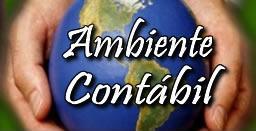Tax saving strategies: Udi Bolos’ Case
DOI:
https://doi.org/10.21680/2176-9036.2020v12n2ID21518Keywords:
tax planning; small and medium enterprises; tax education’s cases.Abstract
Purpose: Udi Bolos’ case discusses tax planning and the best taxation regime to be adopted by a small company.
Methodology: This case uses tax contents and also presents discussions about tax evasion and tax avoidance, showing elements of an ethical-accounting dilemma experienced by many family businesses.
Results: Entrepreneur at Udi Bolos, Mr. Marcelo, seeking to reduce his costs, receives two divergent opinions from two accountants: to act within tax legality or to withhold tax. After a careful analysis, the owner realized it is possible to obtain legal savings for the business with a good tax planning.
Contributions of the Study: The present case encourages students’ critical reflection on taxation regimes in order to reduce the tax burden paid by companies, being useful for learning concepts in disciplines associated with tax and cost analysis. In addition, ethical reflections are carried out on the accountant’s role in the provision of information and manipulation of economic and financial data.
Downloads
References
Daengs, A. (2018). Tax Planning Implementation on Income Tax, Article 23 as A Legal Effort To Minimize Tax Expense Payable, Jurnal Terapan Manajemen dan Bisnis, 4 (1), 1-9.
Fabretti, L. C. (2000). Tributary practice of micro and small enterprises. São Paulo: Atlas.
Fabretti, L. C. (2006). Tax Accounting. (10ª ed). São Paulo: Atlas.
Gonçalves, R., Nascimento, G., & Wilbert, M. (2016). Effects of Public Subsidy in relation to Tax Avoidance and Wealth Generation. Santa Catarina Journal of Accounting Science, Florianópolis, SC, 15 (45), 34-48.
Act nº 4.729, de 14 de julho de 1965. (1965). It defines the crime of tax evasion and makes other provisions. Official Gazette. [of Federative Republic of Brazil], Brasília, DF, 1965. Recovered on November 10, 2019, from http://www.planalto.gov.br/ccivil_03/LEIS/1950- 1969/L4729.htm.
Moura, M. A. V. C. B de. (1971). Tax Incentives Through Exemptions. In: Nogueira, Ruy Barbosa (Coord.). Studies of Tributary Issues. São Paulo: José Bushatsky.
Pessôa, L.C., Costa, G., & Maccar, E.A. (2016). Micro and small enterprises, National Simple and the Issue with Liability of Tax over Merchandise and Services Circulation. Journal Direito GV, São Paulo, 12, (2), 345-362.
Oliveira, R., & Gonçalves, M. (2013). The Importance of Tax Planning to Companies. Scientific Journal E-locução, from Faex, 3 (2), 36-44.
Organization for Economic Cooperation and Development – OECD. (2010). Estatistics about Revenue in Latin America.
Brazilian Support Service to Micro and Small Enterprise – Sebrae. (2020). Recovered on Mars 03, 2020, from www.sebrae.com.br.
Siqueira, A. D. (2011). Tax Management. Journal CEPPG, 24 (1), 136-157.
Souza, F. I. (2013). Tributary Accounting: National Simple on national level concerning to micro and small enterprises. Scientific Journal Semana Acadêmica. Fortaleza, 47 (1).
Souza, L., & Pavão, A. (2006). The need of tax planning in order to achieve a decrease of costs in the organizations. Journal Múltiplo Saber, Londrina, PR, 1 (1).
Downloads
Published
How to Cite
Issue
Section
License
Authors who publish in this magazine agree with the following terms:
Authors keep the copyrights and concede the right of its first publication to the magazine. The work piece must be simultaneously licensed on the Creative Commons Attribution Licence which allows the paper sharing, and preserves both the author identity and the right of first publication to this magazine.
Authors are authorized to assume additional contracts separately, to not-exclusively distribution of the paper version published in this magazine (e.g.: publish in institutional repository or as a book chapter), with the author identity recognition and its first publication in this magazine.
Authors are permitted and stimulated to publish and distribute their papers online (e.g.: in institutional repository or on their personal webpage), considering it can generate productive alterations, as well as increase the impact and the quotations of the published paper.
Creative Commons - Atribuição-NãoComercial-SemDerivações 4.0 Internacional.


 Português (Brasil)
Português (Brasil) English
English Español (España)
Español (España)


